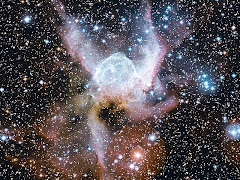





keep a mind of curiosity towards the world and enjoy the happiness of find it out

 For a long time, i think Taiwan is an westernized island like Singapore, without soul and real culture. But with more understanding of this island after moving to Singapore, i have enough confidence to say that the Chinese culture remains better in Taiwan than the mainland, especially those people who were born before the 1970s. The real Chinese culture is one without the influence of the culture of Parties, or politics. The real Chinese culture lies in Changjiang River rather than Dadu River, in the Tai Mountain rather than Jinggang Mountain, in the Confucius rather than Karl Marx, in the Classic books of those ancient thinkers rather than the red book of Chairman Mao.
For a long time, i think Taiwan is an westernized island like Singapore, without soul and real culture. But with more understanding of this island after moving to Singapore, i have enough confidence to say that the Chinese culture remains better in Taiwan than the mainland, especially those people who were born before the 1970s. The real Chinese culture is one without the influence of the culture of Parties, or politics. The real Chinese culture lies in Changjiang River rather than Dadu River, in the Tai Mountain rather than Jinggang Mountain, in the Confucius rather than Karl Marx, in the Classic books of those ancient thinkers rather than the red book of Chairman Mao. There is an old Chinese saying, "Blood is thicker than water". We are one together and the blood during the anti-japanese war has proven our brotherhood. I cannot predict the future but i really wish the peaceful development of the whole China and every Chinese has a happy life.
There is an old Chinese saying, "Blood is thicker than water". We are one together and the blood during the anti-japanese war has proven our brotherhood. I cannot predict the future but i really wish the peaceful development of the whole China and every Chinese has a happy life.
 Both as one of the founders of People’s Republic of China, Chairman Mao Zedong and Premier Zhou Enlai were two world-known political leaders. Simultaneously, Mao and Zhou were also famous for their different personalities or emotional intelligence as Chairman Mao was like a hawk, which was strong-willed, decisive and perseverant while Premier Zhou was like a pigeon, which was moderate, considerate and flexible.
Both as one of the founders of People’s Republic of China, Chairman Mao Zedong and Premier Zhou Enlai were two world-known political leaders. Simultaneously, Mao and Zhou were also famous for their different personalities or emotional intelligence as Chairman Mao was like a hawk, which was strong-willed, decisive and perseverant while Premier Zhou was like a pigeon, which was moderate, considerate and flexible. Although Mao and Zhou are different in terms of their emotional intelligence, this difference does not obstruct them from being great men, which reminds me of one idiom “All roads lead to Rome”.
Although Mao and Zhou are different in terms of their emotional intelligence, this difference does not obstruct them from being great men, which reminds me of one idiom “All roads lead to Rome”.
 But as time goes by, I have some deeper understanding of this German and his idea also promotes my own thinking. I quite appreciate Nietzsche’s explanation of the two words, Dionysian and Apollonian, which reflect the nature of us human being. “God is dead” means the dead of Apollonian dominance and the return of the genuine humanity. If his theory ends up here, it seems that his theory is easier to understand. But subsequently he calls for the naissance of the so-called “Ubermensch”, the superman he claims has the endless passion, creativity and power to save the people from the tribulation. I just doubt that if the superman came into being, will the human being still be free? How can we prevent this powerful superman becoming the next God? I do not think the human political icon can give people more freedom than any superstitious one. Definitely we need some spirit idol, but after all we ourselves should determine our own life rather than any will of others.
But as time goes by, I have some deeper understanding of this German and his idea also promotes my own thinking. I quite appreciate Nietzsche’s explanation of the two words, Dionysian and Apollonian, which reflect the nature of us human being. “God is dead” means the dead of Apollonian dominance and the return of the genuine humanity. If his theory ends up here, it seems that his theory is easier to understand. But subsequently he calls for the naissance of the so-called “Ubermensch”, the superman he claims has the endless passion, creativity and power to save the people from the tribulation. I just doubt that if the superman came into being, will the human being still be free? How can we prevent this powerful superman becoming the next God? I do not think the human political icon can give people more freedom than any superstitious one. Definitely we need some spirit idol, but after all we ourselves should determine our own life rather than any will of others. 

